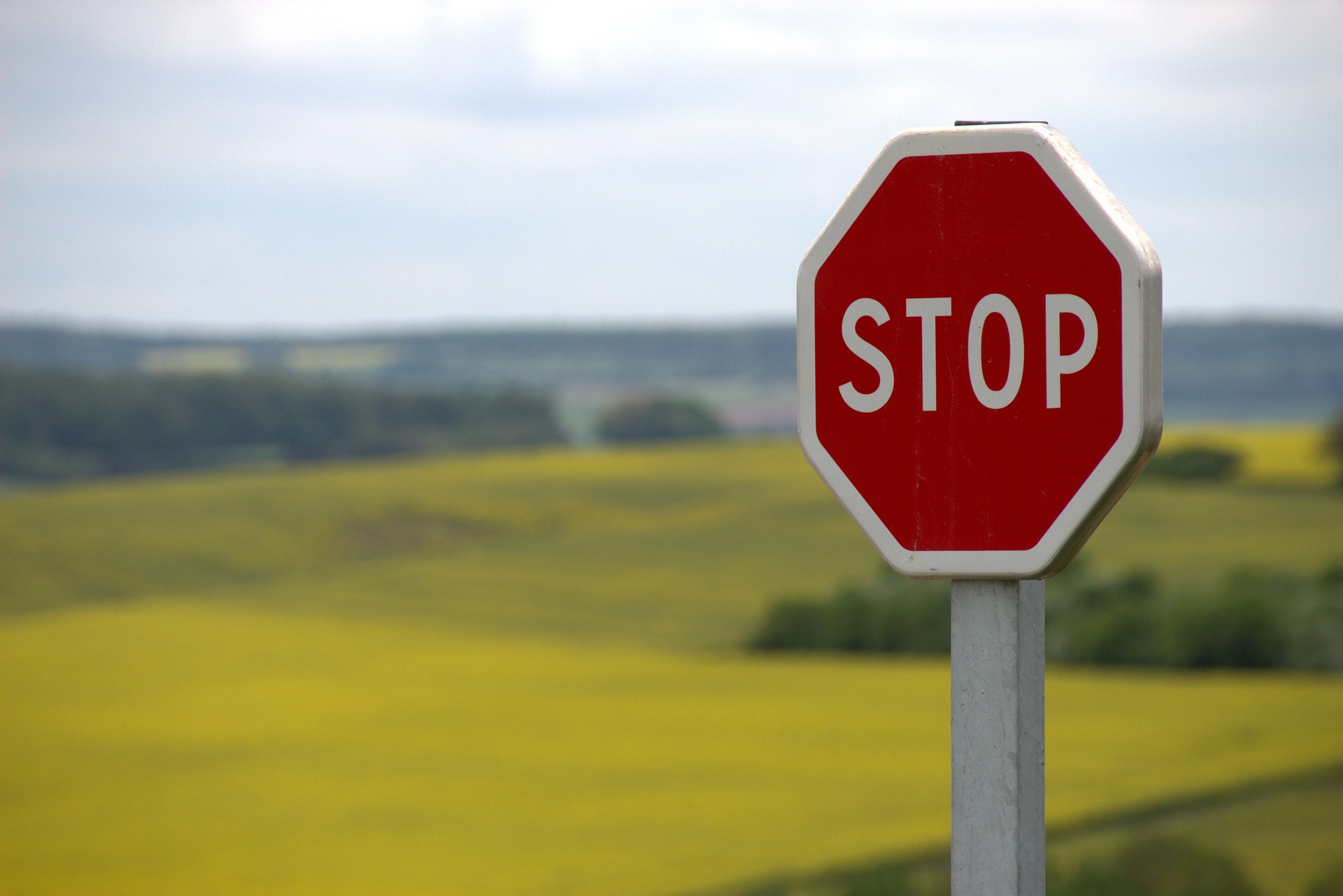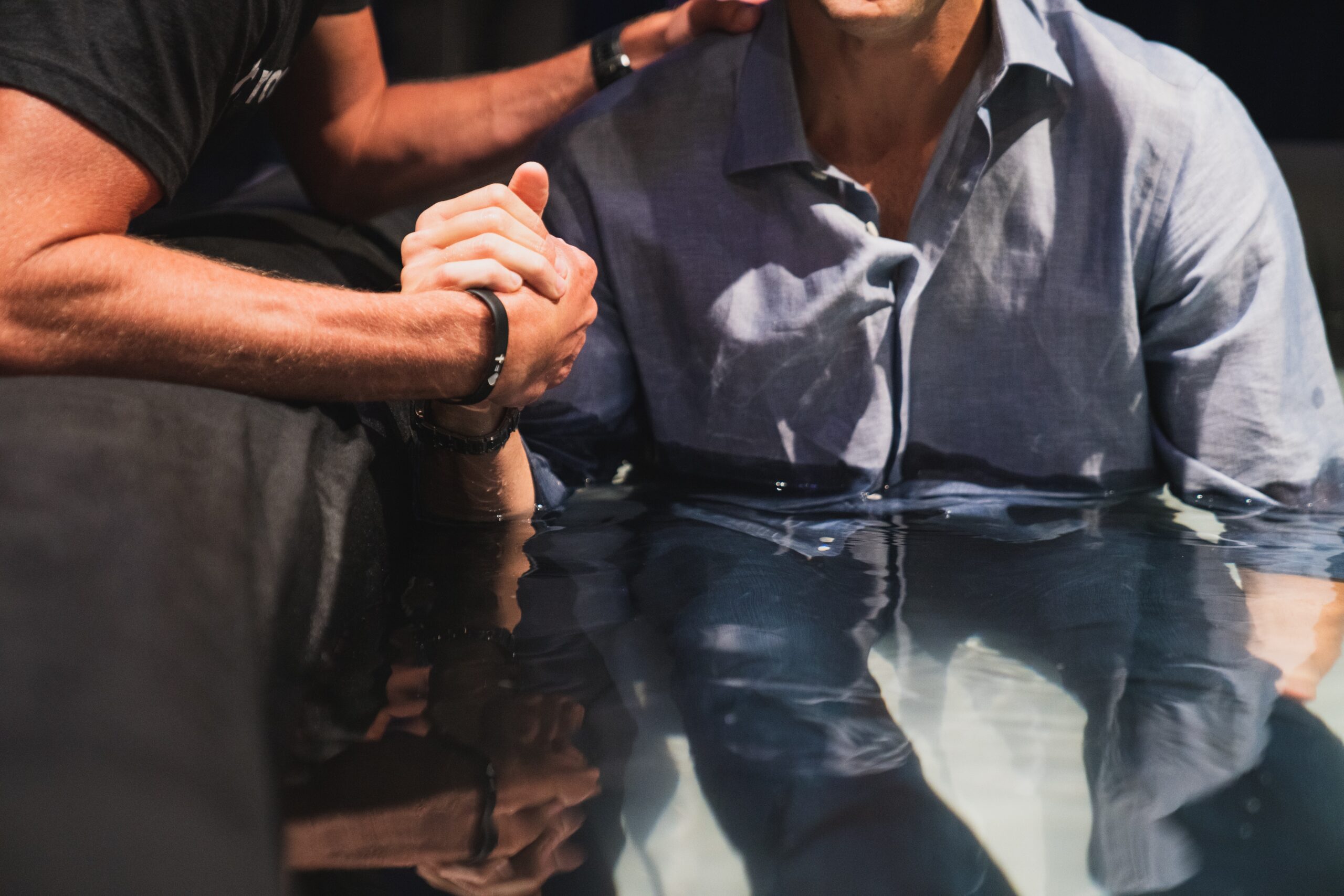Introduction
The serenity prayer is one of the most popular short prayers.
Its simplicity and elegance are unmatched. Here it is: “God, grant me the serenity to accept the things I cannot change, courage to change the things I can, and wisdom to know the difference.”
One of the good things about this prayer is that it recognizes the limits of human ability and innovativeness.
There are certain things we can’t change, no matter our commitment and ingenuity. Such a prayer should help put a brake on the tendencies towards utopianism in many political, economic, and social circles. For example, there will always be social and economic disparities even in societies where discrimination and unjust laws don’t exist; that is something we can’t change.
However, recognizing that we can’t change some things can be a justification for passivity in situations where we can’t be certain of the outcomes of our actions.
If the corrupt cooperation of some business owners and government officials create monopolies and cartels that result in real economic injustice, should we do something about that? What if I am just a journalist, and I don’t know if my exposure of this corruption will lead to a remarkable change or not? What if I am a citizen, and I don’t know if my vote will count towards removing such government officials? How does the serenity prayer apply in such situations?
Should the uncertainty about the effect of my investigative report or vote lead to indolence?

Uncertain outcomes and a call to duty
Most times, when soldiers go out to battle, there is no assurance or certainty that they will win the war.
When the Americans declared independence and went to war with Britain, there was no single guarantee that they would win that battle. When the Britons decided to revolt against the Stuart Monarchy and establish a polity where the representatives of the people in parliament are primary, there was no guarantee of victory.
What if the Americans had decided that the uncertainty of such a war meant that the overreach of the British leadership was one of those things “I cannot change?”
What if the British have decided that the uncertainty of The Glorious Revolution meant the overreach of the monarchs was one of those things “I cannot change?”
What about the abolitionists and the civil rights activists in America? What if the ubiquity and seeming normalcy of slavery and Jim Crow laws, respectively, had been interpreted as one of those things they couldn’t change? What if the uncertainty of the outcomes had dissuaded them?
Closer to home, what if William Tyndale had interpreted the difficulties and uncertainties involved in publishing the first English Bible as a sign that getting everyone to read the Bible in their tongue – rather than listen to the priests read it in Latin – was one of those things he couldn’t change?
What about Luther?
What if he had interpreted the dominance of Catholicism in spiritual and civil affairs in Germany and Europe as proof that the corruptions in the church couldn’t be changed?
If all the people above had interpreted uncertainty as impossibility, there wouldn’t have been the Glorious Revolution, the American Revolution, the abolition of slavery and Jim Crow laws, and Protestantism.
Now imagine what the world would have been like without all of the above.
My point?
“Things I can change” and “things I can’t change” do not do justice to the complexity of human actions and inactions given the uncertainty of outcomes and results.
A third category should be “things I should be trying to change.” “Trying to” introduces a moral component that grounds the appropriateness and inappropriateness of our actions.
What do I mean?
There are some things we should always try to change, irrespective of whether we succeed or not. The two categories in the Serenity Prayer can be taken to mean that success and failure are the determinants of what we should do or not do. However, inserting a category of “things I should be trying to change” introduces a moral determination of responsibility that is not purely pragmatic.
Said differently, a sense of moral duty and responsibility should be the primary factor in the battles we decide to fight or not fight.
The desire for freedom and liberty gave a sense of moral duty and responsibility that led Britain and America to revolutions. A moral conviction about the evil of slavery and discrimination led the abolitionists and civil rights activists to fight for a better society. The desire for an informed laity and a purified church, guided supremely and primarily by Scriptures, gave Tyndale and Luther a sense of moral duty and responsibility.
That sense of “ought” was primary to every pragmatic concern. This is not to say pragmatism has no place – there are times you lose the battle to win the war, and it is a principle of warfare to strike the enemy with your best offensive weapons when/where they are weakest – however, such pragmatic considerations are secondary to the sense of moral “oughtness”.
Consequently, the uncertainty of success (a pragmatic consideration) should be secondary to the sense of moral duty and responsibility.
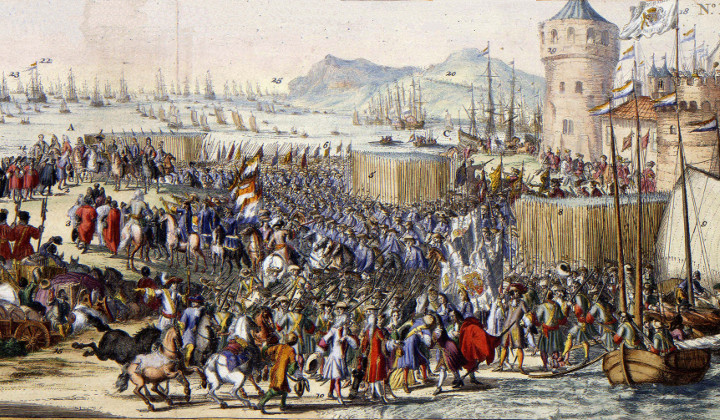
Joab and his soldiers
When the King of the Ammonites died, David decided to repay his kindness (he helped him while he was wandering in the wilderness) by sending condolences to his son, Hanun (2 Samuel 10:1).
Hanun listened to those who said David was merely surveying the land as part of his plans to launch an imperial raid. So he took David’s envoys and disgraced them by shaving off half of their beards and cutting off their garments at the buttocks (verses 2-5).
Perceiving that this did not go down well with David, they started preparing for war; they hired 20,000 Aramean foot soldiers, got 1,000 soldiers from the King of Maakah, and 12,000 from Tob (verse 6).
On hearing this, David sent out Joab and his men (verse 7).
The Ammonites were lined up at the city gate entrance, and all the other soldiers they hired and got (33,000) were in the open country. So there were battle lines behind and before Joab and his men. In response, he selected some of the best troops in Israel to face the Aramaens in the open country and left the others in the hands of Abishai to face the Ammonites at the city gate. If the enemies became too strong for one party, the other would assist.
However, before dispersing them into this battle, Joab had some words for them: “Be strong, and let us fight bravely for our people and the cities of our God. The LORD will do what is good in his sight” (verse 12).
This was not one of the battles where God would tell David what to expect. There was no guarantee of success, and the enemy had extra soldiers from three other places. The outcome of the battle was uncertain. Joab acknowledged as much when he said, “the LORD will do what is good in his sight.” Would that be victory or defeat? No one knew.
Despite this uncertainty, there was a moral sense of duty and responsibility that propelled them forward – we are fighting for our people and the cities of our God. In essence, they were fighting for the future of their nation, a fight that would decide if a foreign power will despoil and rule over them or not.
The spirit of nationalism and patriotism gave rise to a sense of moral duty and responsibility that compelled them to fight bravely even when the outcomes were uncertain. No amount of wisdom could tell them if they would win; pragmatic considerations could increase their odds but not guarantee success.
The armies of Israel went on bravely, and they won.

Embracing duty and responsibility amidst uncertainty
Would my vote be enough to kick out the corrupt Governor or the totalitarian President? I don’t know. But I know that as a citizen in a democratic government, I have a moral duty to use my votes to kick out such magistrates.
The uncertainty of the impacts of my votes should be secondary to my moral duty to kick out evil rulers.
As a responsible citizen, I must not conclude that who wins the election is one thing I cannot change and then pray for the serenity to accept that fact. No! The primary question is whether this is something I should be trying to change. And if it is, I should spare no effort, even if outcomes are uncertain.
Suppose my 5000-member church is teaching false doctrines and going down the path of theological liberalism. It doesn’t matter whether my single “letter to the pastor” will have any effect or not. The primary question is whether I have to do something about it. And if I do, the uncertainty of the outcomes don’t matter.
If a guy is trying to rape a girl and I happen to be walking down the path where he planned to do it, I have a moral duty and responsibility to try and stop him. The fact that I am shorter and thinner and the outcome uncertain (he could beat me and knock me off) should not be an excuse to throw my hands in the air and say, “God give me the serenity to accept the things I can’t change.” While this might not be something you can change, it is something you should try and change – something you are morally responsible for changing.
Again, this does not mean any pragmatic considerations are useless.
Once I accept my duty to change the evil ruler, I can consider writing an article that would expose his ills (an article that would be read by millions, for example). Or I might consider convincing an influential man in the city to add his voice or using my money to support the evil ruler’s opponent. Instead of only casting one vote, I can be more pragmatic and convince others to vote against the evil ruler.
Notice that pragmatism is about how best (within legal and moral boundaries) to do what I have already decided to do, not a way to dissuade myself from doing what I have a moral duty to do because of uncertainty.
Similarly, I can decide that sponsoring the Pastor to attend a theological conference that would shape his theology in the right direction is a more pragmatic option.
In the case of the rapist, I can decide to take a plank with me and hit him before he can notice that someone else is there.
You can fill the gap with what you think the most pragmatic options are in those situations. But what is not pragmatism but evil is allowing false doctrines to thrive and a lady to get raped because I am not sure if I would be able to change the situation.
The sense of moral duty and responsibility must be primary.
Like Joab, we can fight bravely and leave the results to the sovereign God.
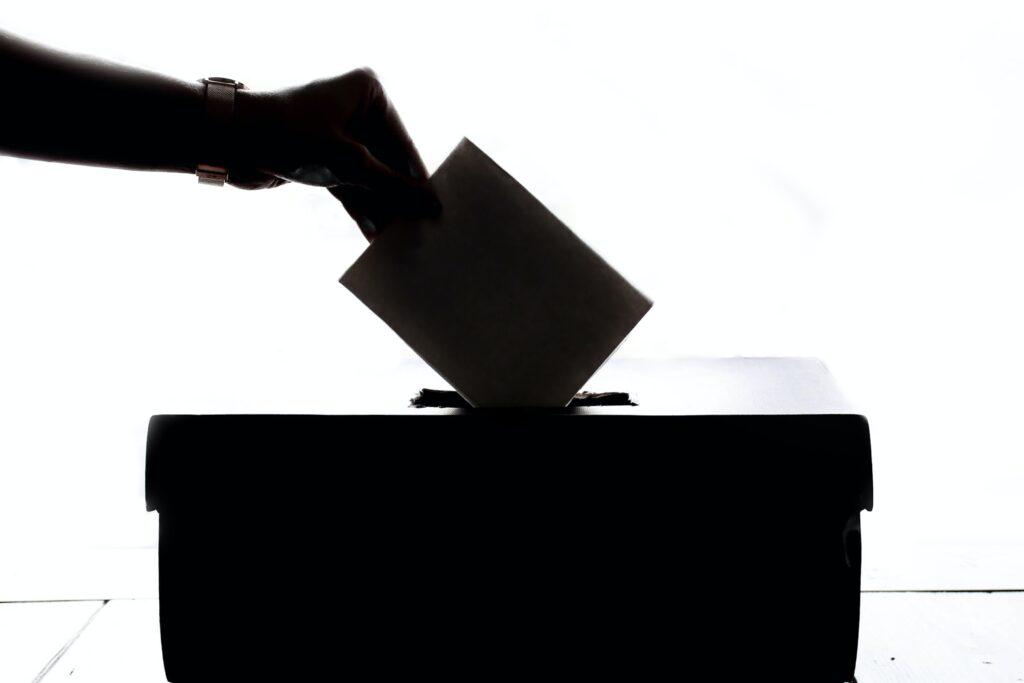
Uncertain outcomes and the cumulative effects of little things
“For want of a nail” is a proverb that has been attributed to Benjamin Franklin. Here is the version from Goodreads:
“For the want of a nail the shoe was lost,
For the want of a shoe the horse was lost,
For the want of a horse the rider was lost,
For the want of a rider the battle was lost,
For the want of a battle the kingdom was lost,
And all for the want of a horse’ shoe-nail.”
One of the purposes of this parable is to emphasize the importance of little things. A nail, on the surface, is useless in something as grand as the battle for a kingdom. But the want of a nail can cause the horse’s shoe to be lost; the want of a shoe can cause the horse to be lost; the want of a horse can cause the loss of a rider; and the loss of a rider can be the doom of an army, and consequently, the ruin of the kingdom.
We don’t often know the potential impacts of our little actions. Luther could never have imagined that something as “insignificant” as posting some theses on a door will lead to a revolution that would forever change Europe and the whole world.
Rosa Parks did not know she was starting a civil rights movement when in 1955, she refused to give up her seat in the black section of a bus in Alabama for a white man who couldn’t find a seat in the white section.
We could go on and on.
If we don’t know the ripple effects our little efforts can make in a cause, then we are worse off for refusing to try.
We must not allow uncertainty to rob us of the potential domino effect of our little labours. The sense of moral duty and responsibility must always compel us forward while we hope and wait that God will bring some unimagined fruits out of our actions.
Your simple article might be the final nail in the coffin of an evil government; your faithful exposition of a biblical passage may be the beginning of a return to biblical faithfulness in your church or denomination; your single courageous act to prevent a rape may have saved hundreds from the trauma and lead to a cascade of events that reduces rape drastically; your simple act of kindness may prevent the future President that will transform your nation from committing suicide as a frustrated university student.
A nail is insignificant, but in God’s World, a nail may decide the fate of a kingdom.
So let’s keep doing our parts, following our moral convictions and approaching our moral duties with a sense of responsibility, irrespective of the uncertainties of the outcome.

Even If
Even if our efforts end up yielding zero fruits, it would still have been worth it. Even if the evil government wins another term, the church slips deeper into heresy, the rapist knocks you off and still rapes the girl, it would still have been worth it.
Remember, our sense of moral duty and responsibility precedes pragmatic considerations. So even if we lose, the moral rightness of our actions is enough justification for them.
Of course, we should not plan to lose; we should ensure we are doing the best we can, using our best resources and exploring the enemy’s weaknesses.
But even when we lose, we should not be deterred. What matters primarily is that we did not play the part of a coward – that we stood up to our moral duties and did what was right in the best way we knew how.
Like Joab, we should go forward to the war and let God do what is right in his eyes.
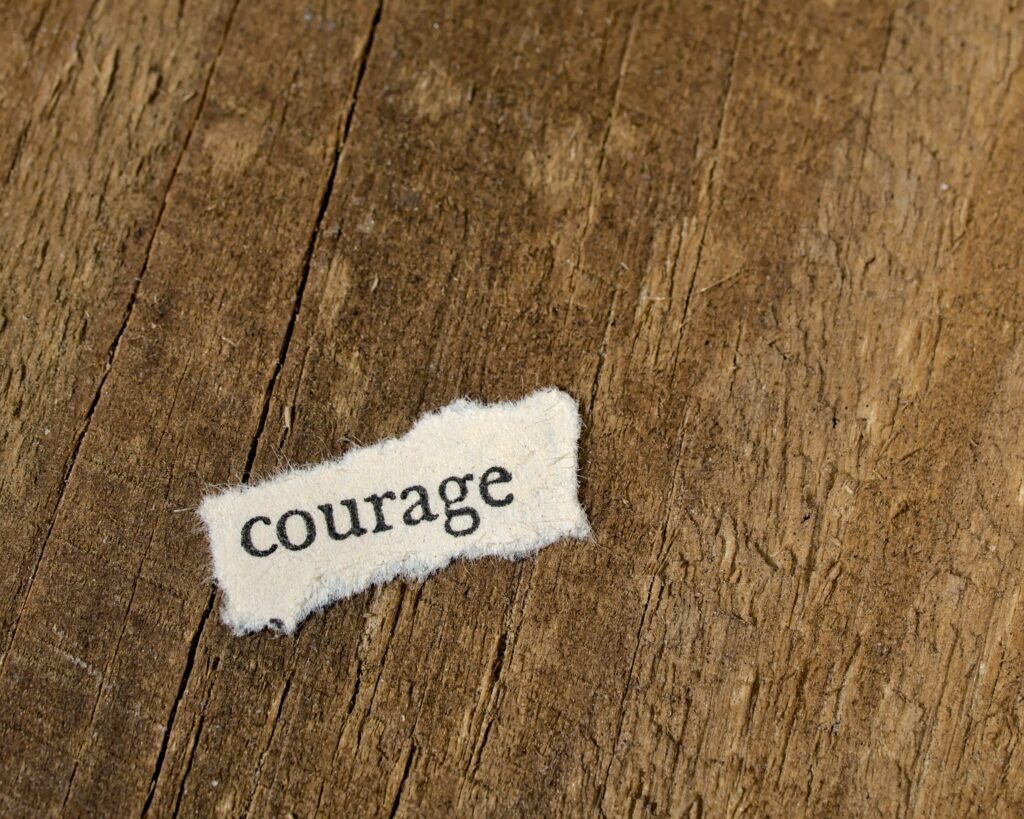
Conclusion
Some things are inherent in the nature of the world we live in – economic and social disparities (which is different from economic and social injustices). We can’t change those things, and we should ask for the serenity to accept them.
It’s evident that there are some things we can change, and we should embrace the challenge.
But there are many things in between that we don’t know if we can change or not. We can’t say if our efforts to change them will be successful or not. We can’t predict the outcomes of our actions.
When we confront those things, our sense of moral duty and responsibility to change them must override the uncertainty of success.
So instead of only considering what we can change and what we can’t, let’s start asking for serenity to accept the things we should be trying to change and wisdom to know the best way to try.


